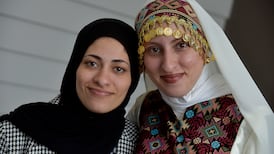The Junior Cycle home economics paper was stimulating, topical and relevant to the lives of students, teachers have said.
Linda Dolan, a home economics teacher at Mercy College, Sligo, said that the questions reflected the broad home economics course.
“It drew on many different topics that are very relevant to today’s society, for example protecting children on the internet, food waste and [how] where clothes are made [has] an influence on a person’s choice of clothing,” said Ms Dolan, who is also a Studyclix.ie subject expert.
Mairead Tomkins, Teachers’ Union of Ireland subject representative for home economics and a teacher at Coláiste Eoin in Hacketstown, Co Carlow, said nobody was quite sure what to expect on the first ever common-level paper, but it was very learner-friendly.
After 5,418 days Dublin have finally lost in Leinster and Jim Gavin’s new rules made it possible
Magic movies: The 25 best comedies of the past 25 years – in reverse order
The last confession of ‘Disappeared’ IRA man Joe Lynskey – a priest recalls, more than 50 years on
Britain does not dictate Irish law. Or Irish feminism
“It was very current, with questions on being an ethical consumer, fast fashion, sustainability and water conservation, as well as the usual questions on the digestive system,” she said.
Ms Tomkins said the questions were phrased reasonably and the level of English was pitched well.
“There were a lot of linkages between the topics. For instance, students were asked to make a meal plan for someone involved in sport, and then asked about the benefits of sport.
[ Examwatch 2022: Reaction to Junior Cycle and Leaving Cert exams ]
“There was also a question about outdoor holidays, and then students were asked about saving for holidays and the benefits of vitamin D.”
Ms Dolan, however, said students may have been disappointed with the lack of focus on direct nutrition questions.
“Only two questions on vitamins appeared — a profile on Vitamin D and how to increase vitamin content in meals,” Ms Dolan said.
Students have already completed a cooking practical which accounted for 50 per cent of their overall marks.
Try this one at home:
Junior Cycle home economics, common level
Colm is a physically active, Junior Cycle student. He follows a healthy, balanced diet and drinks two litres of water every day.
a) (i) Design a healthy balanced three‐course breakfast menu for Colm to eat at the weekend.
(ii) Describe three meal planning guidelines you followed when planning Colm’s breakfast menu.













